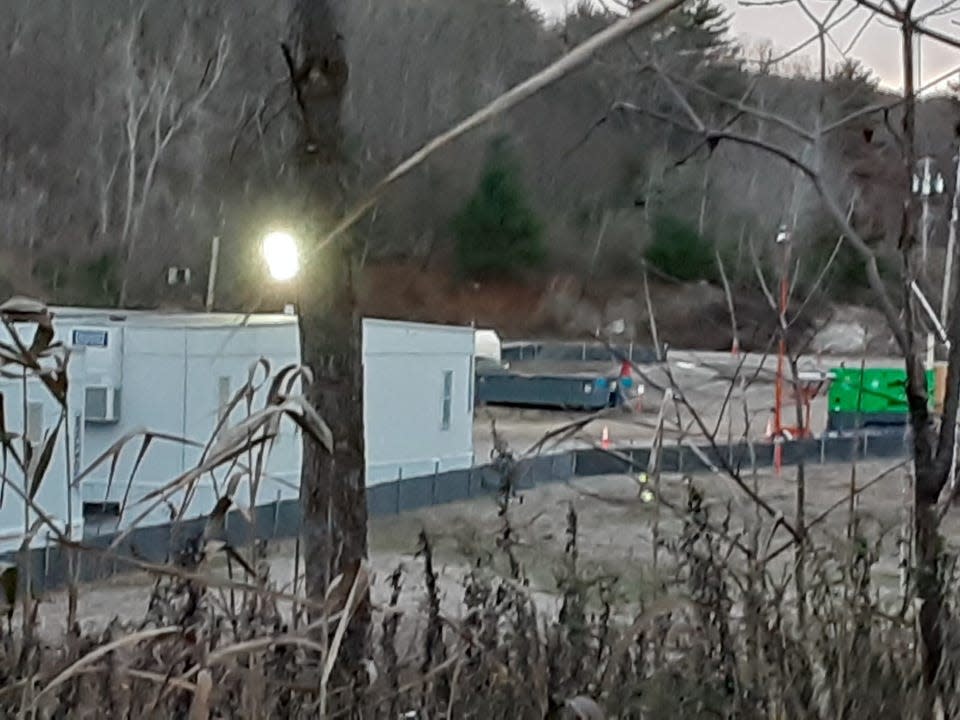The Tennessee Gas Pipeline expansion is still a bad idea. Here's why | Opinion
- Oops!Something went wrong.Please try again later.
In mid-February, Gov. Phil Murphy gave a speech in which, among other things, he moved up the state’s goal for net zero carbon energy sources to 2035 instead of 2050. Yet many environmental, climate and progressive groups, and more than a few media outlets, criticized this speech. Why?
The primary reason for this criticism is the seven new fossil fuel projects that are still alive in New Jersey that cumulatively, if built, would increase both the amount of health-impacting air pollution in towns and cities near the projects, as well as the state’s greenhouse gas emissions. Empower New Jersey, a coalition of 120 groups opposing this fossil fuel build-out, estimates that if all seven projects are built there will be an up to 38% increase in greenhouse gas emissions, deepening the climate hole we’re scrambling around in.
One of these seven projects, the Kinder Morgan company’s Tennessee Gas Pipeline East 300 Upgrade, has broken ground and is beginning construction of a new gas compressor station in West Milford, and the state DEP in late January approved the tripling in size of an existing gas compressor in Wantage.
What is the purpose of this gas? It is not for the benefit of New Jersey residents. The increased amount of gas that is planned to flow through the 65 year old pipeline these compressors will be connected to is going to Westchester County, New York. There, despite New York’s Climate Leadership and Community Protection Act, which requires drastic greenhouse gas emissions reductions by 2030, and Murphy’s newly announced New Jersey policy, this New Jersey Department of Environmental Protection-approved project will work against those policies. But it will certainly help Kinder Morgan’s bottom line.

Then there is Kinder Morgan’s safety record. According to Pipeline and Hazardous Materials Safety Administration failure reports, from 2006 to 2017 Tennessee Gas Pipeline had 111 significant incidents with its pipelines, resulting in $89,815,380 in property damage and 19 federal enforcement actions.
This is a huge issue after last week’s Kanouse Fire near Route 23 in West Milford. It is a fact that there have been a number of fires or explosions at gas compressor stations over the last 20 years in the U.S. Imagine the damage that could be done to forests, homes and businesses in West Milford and beyond if this took place. And with global heating only getting worse in coming years, the risk of such an accident causing tremendous damage will also get worse.
There are additional reasons why it is time for the governor to step in and call a halt to the construction. This project constitutes a threat to the water supply of 3.5 million New Jersey residents because the West Milford compressor site is less than 1,200 feet from the Monksville Reservoir. Indeed, on Jan. 1, 2022, there was a major, very loud, 70 minute unplanned blowout of gas at the existing Wantage compressor.
Earlier perspective: Phil Murphy can still stop a reckless North Jersey pipeline expansion. Will he? | Opinion
These possibilities are increased because DEP does not consider the full climate and environmental pollution impacts for any proposed gas compressor in New Jersey in determining whether or not to grant an air permit. The agency ignores the likelihood of unplanned compressor blowouts and the certainty of emissions leaks from gas pipelines. The only thing it factors in is planned blowouts by the company.
Finally, there is the very real possibility that the New Jersey Highlands Council, more than two years ago, illegally gave Kinder Morgan an exemption to the Highlands Act so this project could move forward. Jeff Tittel, former Director of the New Jersey Sierra Club, said at the time: “This is the wrong project in the wrong place at the wrong time. An exemption should not be given because this is new infrastructure that will add new capacity. The council is siding with gas companies over protecting the Highlands. They will give the green light for a compressor station that will impact environmentally sensitive areas and the drinking water for over 3 million people, many of them in already overburdened environmental justice communities.”
Several environmental groups are still in court challenging this exemption.
Governor, stop digging our climate and pollution hole. It’s past time to stop this and all the other hole-deepening, polluting fossil fuel projects. If you truly want to be a national climate leader, here’s your chance to stand out by canceling these unhealthy projects that will place us even further from your new stated climate goals. Don’t be afraid to stand up to big business and stand up for your constituents who live in these compromised areas.
Ted Glick is the president of 350NJ-Rockland, a climate advocacy group .
This article originally appeared on NorthJersey.com: Tennessee Gas Pipeline expansion West Milford NJ still a bad idea.

